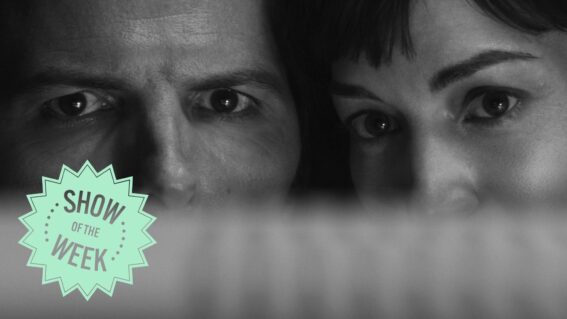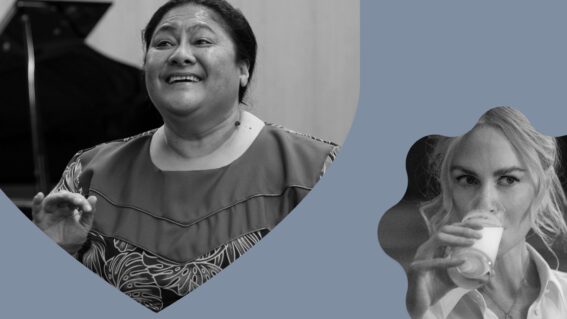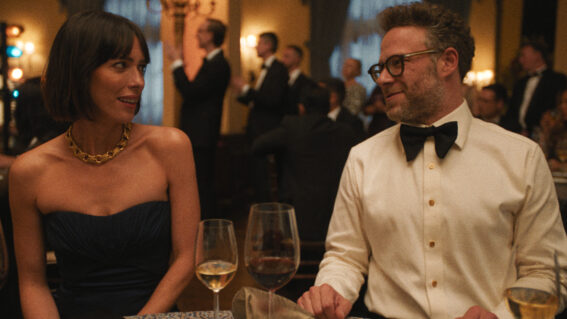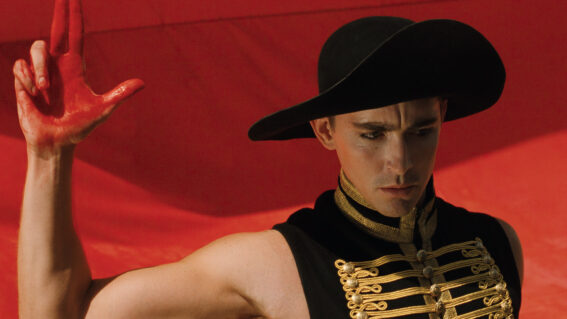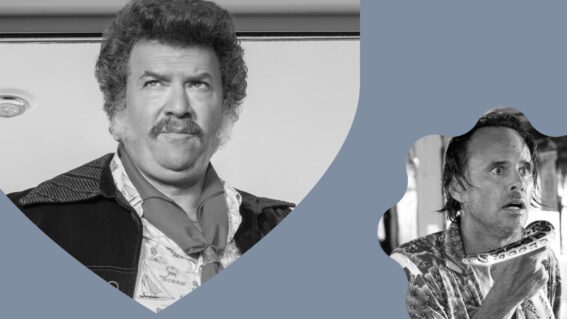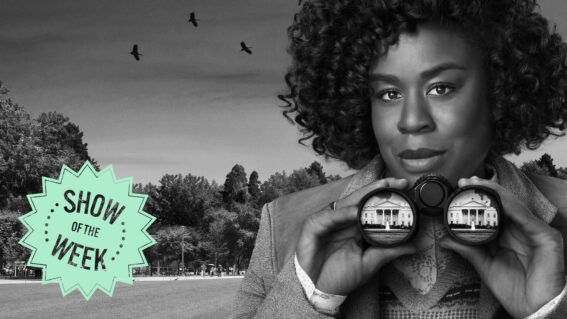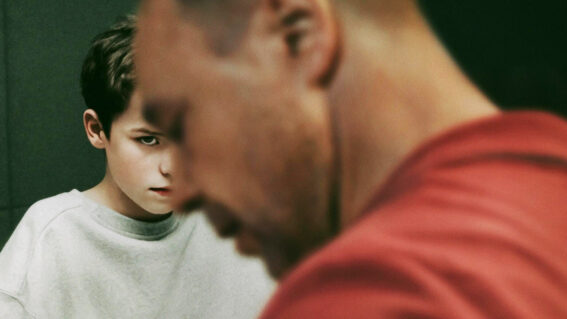How NZ’s wheelchair rugby team ruined an Oscar-nominated film
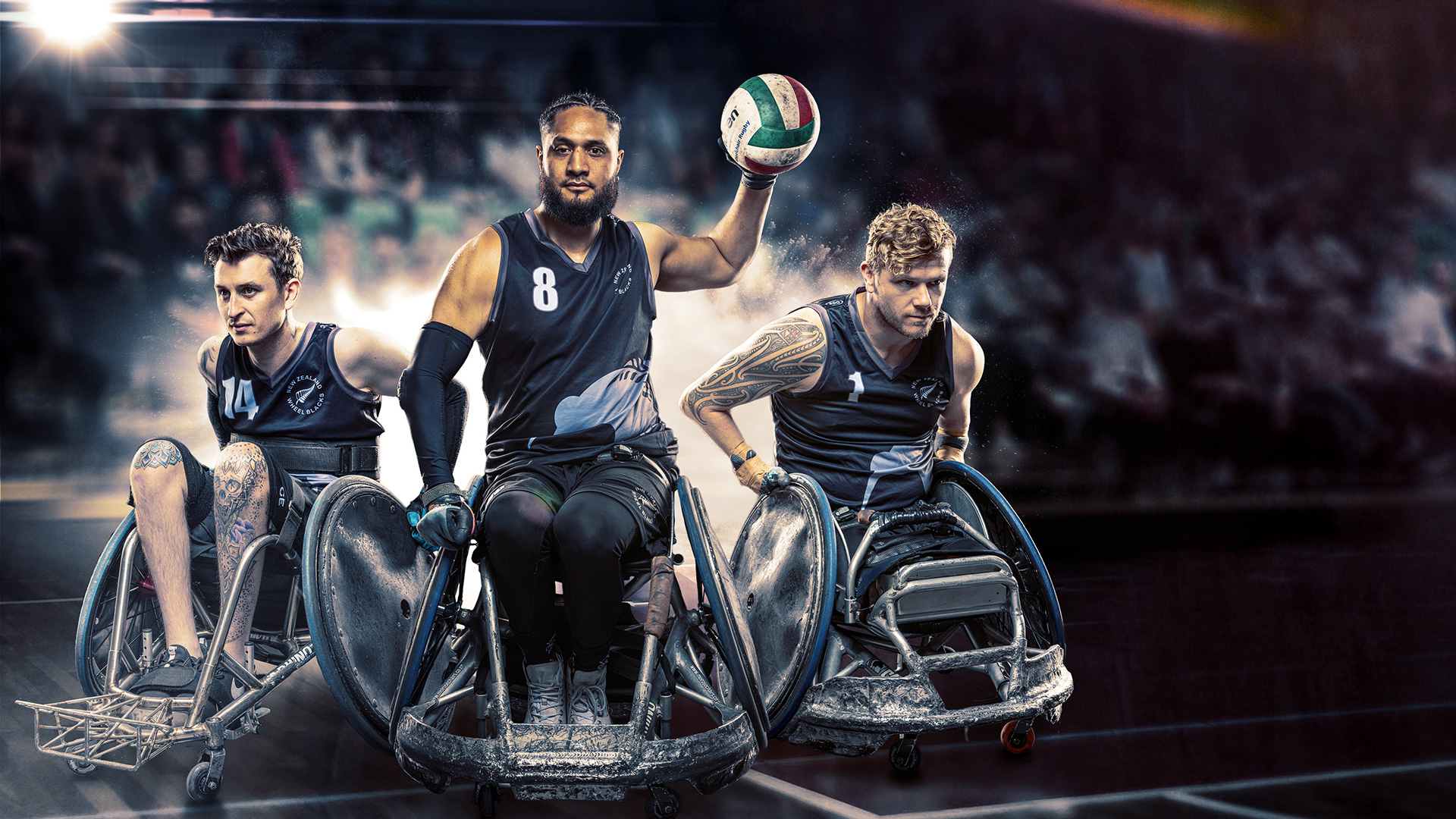
As we enjoy our summer, Flicks editor Steve Newall shares some of his favourite reads of the year.
The makers of Aotearoa sports documentary Wheel Blacks: Bodies on the Line talk about their new disability-led production company, filming the three-part series, and how New Zealand’s national wheelchair rugby team ruined an Oscar-nominated film.
In the lead-up to the 2024 Paralympics, a new three-part documentary looks to tell the story of one of Aotearoa’s prestigious sporting teams as they chase podium glory. Wheel Blacks: Bodies on the Line follows New Zealand’s national wheelchair rugby squad’s journey towards the biggest competition in the sport.
The docuseries marks the first release from Sweet Productions, co-founded by producer-director Robyn Paterson and producer-editor Jai Waite. The pair worked together over the years as freelancers and, when a structural change at their former company motivated them to move on, decided to join forces.
“We just worked so well together,” Jai tells me over video chat. “We cover all sides of the production.”
“We’re also at a similar time in our lives,” Robyn adds. “We’ve done a lot of creative work for a lot of different companies. I’ve been lucky enough to do some independent films as well. We were ready to own our content and motivated to create a company that was coming from a disability-led point of view.”
Jai concurs: “We just want to tell great stories, whether it’s disability [or not]. We’re storytellers, and that’s what drives us.”
Jai played for the 2004 gold-winning Paralympian team, but wheelchair rugby’s grown drastically in the decades since, and the Wheel Blacks have struggled to match those heights. “The sport’s elevated to a whole new level. When I played, the playing field was a lot more even in terms of what the teams got. Now you’ve got countries like Germany, their budgets have gone from next to nothing to like 2,000,000 Deutsche Mark. That’s the kind of money these teams are throwing around. It’s become one of the poster child games of the Paralympics—they’re filling 20,000 seat stadiums. So where the Wheel Blacks are now (and the history they carry with them) is trying to get back to the Paralympics.”
As Robyn points out, it makes the release of their docuseries a timely one. “It’s the 20th anniversary this year of the Wheel Blacks winning gold in Athens. It’s [also] incredibly spectator friendly. It’s really cool to watch. It’s very dynamic. In New Zealand, we really pride ourselves on our rugby. We don’t necessarily know as much about our wheelchair rugby team. We really wanted to give it that profile that it deserves, because we’ve got some incredible athletes out there representing New Zealand on the world stage.”
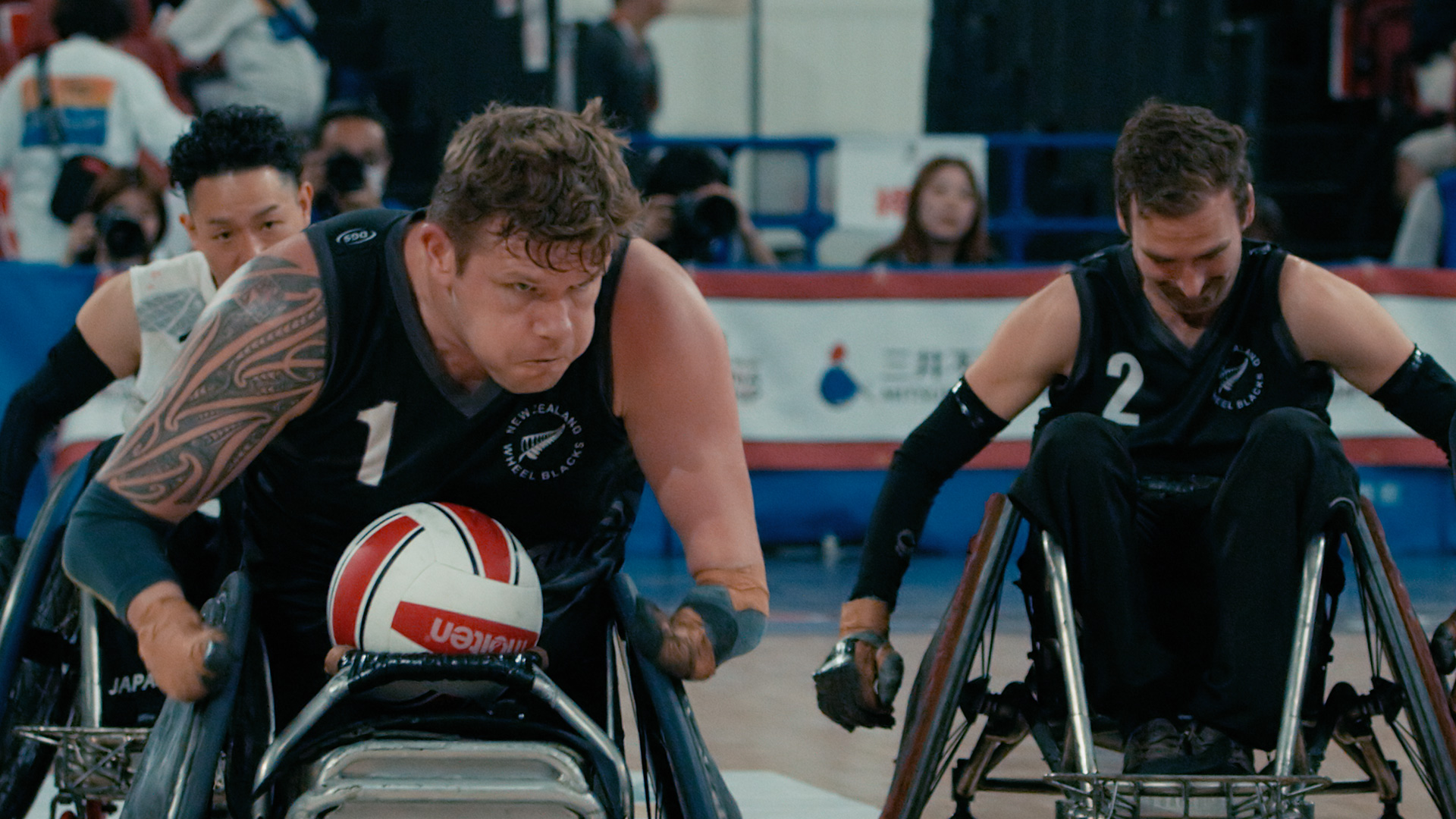
The sport previously gained awareness thanks to another documentary, 2005 Academy Award-nominated film Murderball (titled after the original name for wheelchair rugby). It’s a topic that delights Jai because he gets to say, “We’re the team that ruined Murderball.” He elaborates: “At the end of [the film], there are these two teams that are supposed to play out for the gold. [But] actually, they didn’t get to play out for the gold.” That glory went to the Wheel Blacks, a team who barely appeared in the doco.
“They didn’t really feature the New Zealand team too heavily,” Robyn adds, “but it really did change the ending that they were heading towards.”
“After Athens, I was sitting at my home office,” Jai recalls. “I got an email from the producers of Murderball saying, ‘Can you sign this release form?’”
With Bodies on the Line, the Wheel Blacks are now in focus, and in many ways, it’s a classic Kiwi underdog sports story of a dedicated team going far beyond their means to represent their country (unlike Germany, the New Zealand squad doesn’t have millions of dollars at their disposal).
“They are not paid but they are representing sport at the highest level,” Robyn explains, a fact of life that proved to be one of the toughest wrinkles for both the filmmakers and the subjects. “Most of them have full time, 40-hours-a-week jobs as well as lives, families, partners… They’re very, understandably time poor so getting time with players was definitely a challenge for us and for them. We were really aware that that was a big ask, but they were incredibly generous. Everyone has a lot to offer in terms of what they bring to the team and what they bring to the story.”
I asked the pair for their fondest memory in bringing their stories to screen. The Asia Oceania championships in Tokyo was a real highlight for Robyn, and not just to see the Wheel Blacks in action. “It was actually seeing the level of audience support in Japan, being in a packed stadium. That was such a highlight for the team as well. They are not used to having this massive audience in a stadium like that, and the level of excitement and support sitting behind wheelchair rugby in Japan was super exciting.”
For Jai, it was the micro moments. “Sport’s such a great vehicle for acceptance. All of these guys have been through something, like myself. Playing a sport like this, getting to the level that they have, and then finding themselves… Those are the moments I think for me.”
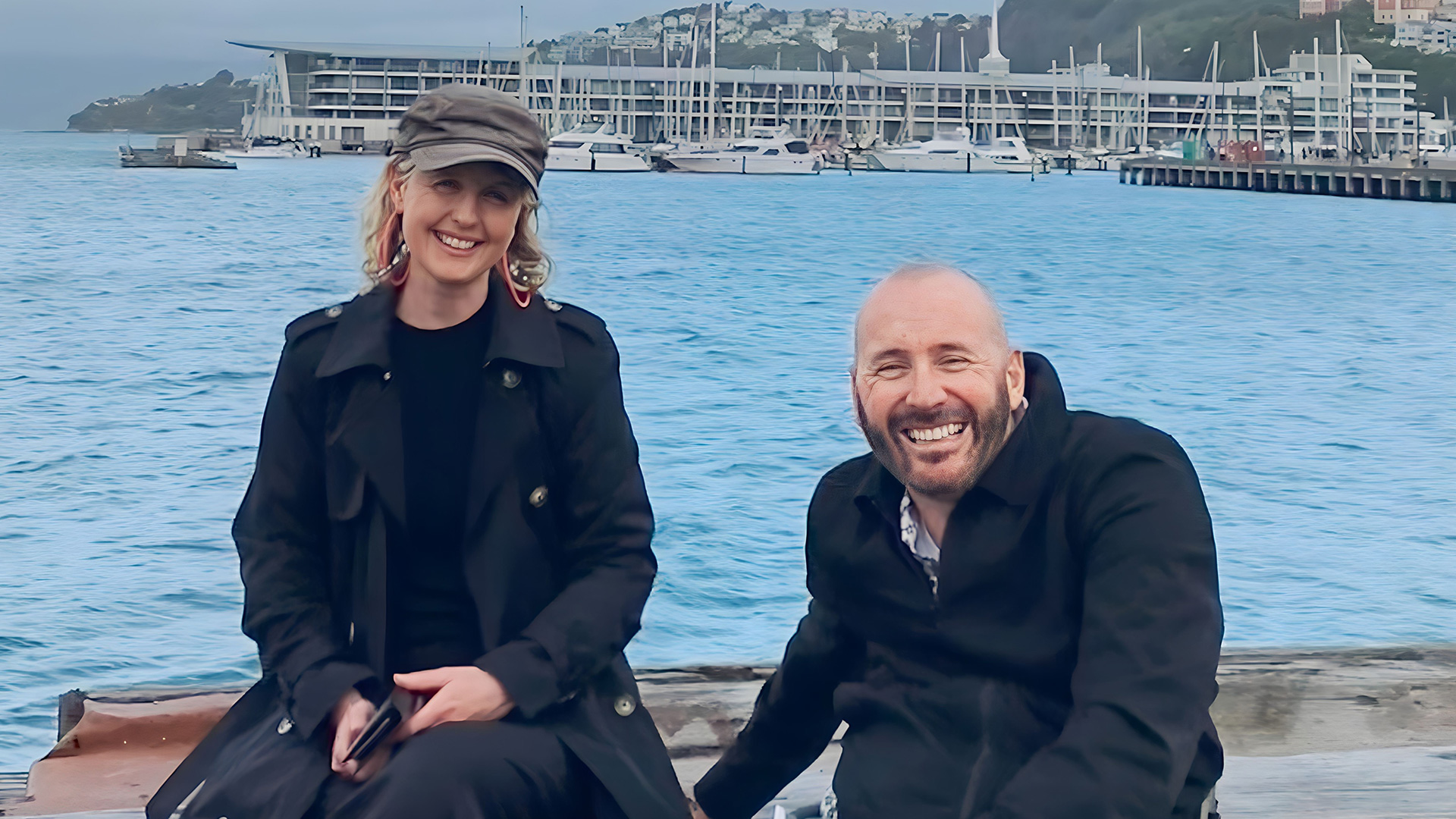
Robyn Paterson (left) and Jai Waite (right)
Speaking of vehicles for acceptance, Sweet Productions is just about to start filming their next project, a six-part series under the working title All Access Driving School, which revolves around people with a wide range of disabilities learning to drive.
“Learning to drive is such an exciting part of life,” Robyn states. “It’s also pivotal to independence. Anyone who’s learned to drive, and anyone who’s taught someone to drive, is well aware of the roller coaster that’s involved. It comes with its own highs and lows, funny moments, difficult moments, and challenges as well. But when you’re learning to drive with a disability—whether that’s an invisible disability, or a mobility disability, or physical disability—there are so many factors that come into play: how your mind works, how your body works, how the car works, what the modifications are for the car. How people learn to drive is very different but it’s incredibly important to people’s lives.”
“I face it on the daily,” Jai adds. “I’ll go to the supermarket and someone’s always asking me, ‘How does the car work? How do you drive it?’ I’m quite open so I’m happy to explain and show people.”
I brought up a micro moment in the first episode of Bodies on the Line that stuck in my mind—a relatively quiet moment that saw one of the players get into their car while a giant mechanical arm attached to the boot of the vehicle retrieved their wheelchair. I’m fairly ignorant to the daily lives of a disabled person, so that was a small thing that blew my mind.
“That’s the importance of visibility as well, right?” Robyn answers. “It’s a sports documentary first and foremost, but there are those little things along the way that just quietly blow people’s minds. But it’s everyday life for people, but [the show’s] not focusing in on that as a difference. It’s just part of life. I think that’s one thing that we really wanted to make sure that we were showing as well, but not in a medicalised way.”
Before clocking off, I ask Robyn and Jai for any movie or TV recommendations. “I’m finding a lot of great content to watch out there,” Robyn states. “I’ve recently been watching American Nightmare, the Ashley Madison documentary, and the third season of The Bear.”
“I’ve watched all of Spinal Destination,” Jai says. “I know the spinal unit quite well, I’ve met [the show’s director] Paula [Whetu Jones] a couple of times as well.”
Robyn adds: “There’s so much fantastic local content coming out at the moment. Black Coast Vanishings was another great series, and Madam. I think it’s really interesting what happens when we give New Zealand content just that extra bit of funding, what can actually be done, and I think we’re starting to see the results of that.”
Originally published by Flicks on Aug 13, 2024.


